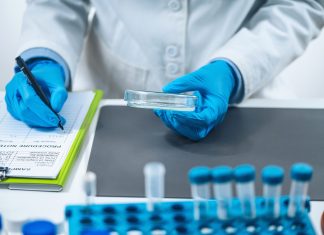Russian researchers have found a compound that can increase the effectiveness of targeted therapy as a carrier for drug delivery to tumor cells. This is reported by TASS with reference to the press service of Lomonosov Moscow State University.
The properties of the complex based on a biocompatible microgel (carboxymethylcellulose) were studied by researchers of the Chemistry Department of Moscow State University and V.N. Orekhovich Research Institute of Biomedical Chemistry . The combination with copper radionuclide, in particular, made it possible to reduce the size of its particles for use as an anti-tumor drugs carrier.
“We were particularly interested in how such microgel would be distributed throughout the body and how it would be excreted, since humans produce no enzymes that could process cellulose. It was found that microgels cross-linked with copper are excreted much better than pure carboxymethylcellulose. If such a carrier is used in combination with a deliverer, which is a biodegradable vector that can lead it to the target cells, then the radioactive element will not spread throughout the body, which is very good. After the short-lived radionuclide finishes its work, the polymer is able to leave the body,” Marina Orlova, a leading researcher at the Department of Radiochemistry of the Chemistry Department of Moscow State University explained.
The resulting complex was tested by the researchers. At the next stage of the work, it will be tested in combination with the delivery system bringing the drug to the cells.
The results of the research are published in Colloids and Surfaces A: Physicochemical and Engineering Aspects.
As it became known earlier, Bristol-Myers Squibb is going to destroy the cancer drugs that were intended for clinical trials in Russia.




